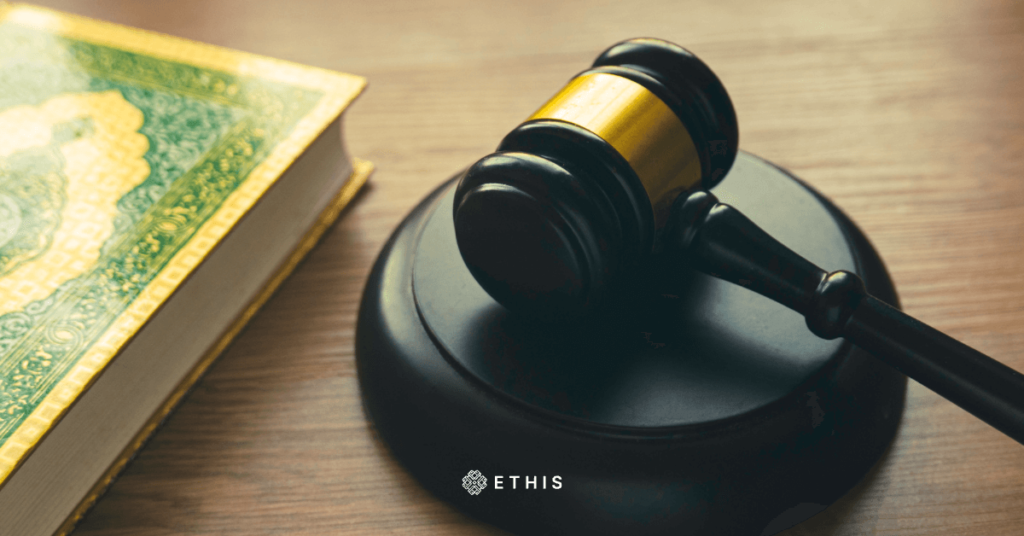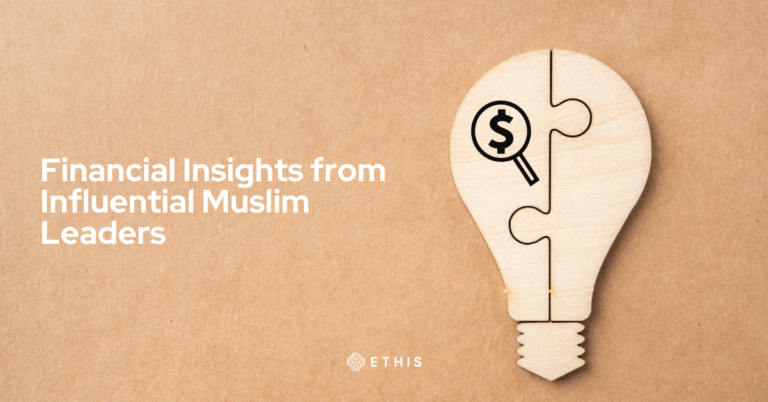
Islam is about balance, and thus Muslims strive to keep balance in their everyday lives. It goes through every aspect of life, especially finance.
When has one earned enough to survive and live in prosperity before it becomes a form of hoarding and greed? When has one given too much that they, and in turn their family suffers, which is a sin upon itself?
These are the kind of questions Muslims have to consider on a daily basis.
Both the supplication and the Quranic verse indicate that seeking material prosperity in this life is not sinful in and of itself.
We must, however, act within Islamic ethical and religious boundaries. Every Muslim must make wise financial decisions in order to attain this.
So how does one make Shariah compliant decisions? Here’s some tips from influential Muslims on how to handle one’s finances.
What are the biggest challenges facing Muslims when they’re trying to bank according to the practices of Islam?


One is about education and awareness, both for people who profess to be Muslim, as well as people of other faiths — about what it means to engage in a transaction that meets Islamic principles or tries to meet Islamic principles. There are some home-grown efforts in home finance, for example, and refinance, like Guidance and University Bank.
And then ones that offer investment options like Saturna and Azzad Asset Management, among others that bring socially responsible principles to bear along with the more technical aspects of Islamic commercial laws.
There’s a strong parallel between both impact and responsible investing and Islamic principles.
According to Umar Moghul, a partner at law firm Roberts Moghul & Partners, both Muslims and non-Muslims alike struggle when it comes to information dissonance with finances. Investors can struggle when trying to find out whether whoever they’re investing with is Shariah-compliant.
“The elephant in the room that no one has sorted out is commercial financing, whether commercial real estate or business financing, like a working capital facility along Islamic lines” added Moghul when asked about other challenges facing Islamic investors.
“It’s been done before, typically for the larger investors, where the transactions are large enough to bear the transaction costs of putting something like that together. The more typical American Muslim financing is probably somewhere between a couple hundred thousand to four or five million. That’s kind of the sweet spot. And those transactions are so small that it’s difficult to find a bank or borrower that’s willing to bear those transaction costs, both for education, awareness, legal costs, etc.”
Ibrahim Warde in the meantime, says that the challenge for Muslims in non-muslim countries is the lack of Islamic financial instutions in those countries.



“There are maybe 10 or so [In the U.S.]. There are a few areas where those banks are quite active. One of them is Islamic mortgage and another is Islamic investing, in the sense of mostly mutual funds, so these tend to have a screening mechanism, where they would screen out all the stocks that would be problematic from an Islamic perspective. In the context of the U.S. these are among the most significant forms of Islamic investments that are commonly done,” Warde said.
Saturna Sdn. Bhd.’s President and Executive Director, Monem Salam, however, says that the issues of Islamic investing are more basic than that.
“One of the biggest challenges is that there’s no particular banking product that’s available that doesn’t give you an interest rate. They’re all based on interest. That’s one issue. Across the gamut of whatever the financial products are, you’re going to find some holes that need to be filled. On the mortgage side of things, there are very few options for a jumbo mortgage [where the loan amount is higher than the conforming loan limits],” said Salam.
So what should one keep in mind when looking for institutions/companies that are compliant with Islamic financial principles?


According to Mughol, Muslims should look out whether institutions or companies have a Shariah review board, with more than three people on board. “You want to see if the organisation adheres to any best standards or best practices, like those set out by AAOIFI, the Accounting and Auditing Organisation for Islamic Financial Institutions [in the U.S.].
You also want to look at the biographies of the people on the board. Are they seasoned experts? What’s their background experience in business and finance, and what’s their background in understanding your own local cultural context?
Are they familiar with living in the U.S. and the realities and facts on the ground that differ from country to country?”.
Warde says that Muslim’s need to be educated and aware what is halal and non-halal.
“The overriding principle is, basically, that you cannot make money with money. So interest is a bit problematic, although there are ways to get around that,” Warde said.
In Islam, the real economy and certain forms of finance, such as leasing, are connected, and that is fine. However, if you’re an investor and there’s no tangible product or service that can be seen from a prospective investment, be careful as it could possibly both be non-Halal, and possibly a scam.
Salam brings it back to how essential it is that a company has a Sharia advisory board “…that’s overseeing their investments and contracts, and they’re signing on them, almost like an audit. So whether it’s 31% or 32%, it matters less, because you’re still in the realm of halal, as long as it’s been signed off. So normally what will happen is the financial institution will have a Sharia letter on their website”.
As muslims investors and financial planners, there are plenty of details that we must pay attention to. Hopefully these tips can help to make the challenges of managing finances in accordance with your faith a little easier.





Top Posts
Islamic P2P Crowdfunding Explained
How to Earn Halal Money? The Money Mindset
Halal Investments for Singapore Muslims? It’s time for a shake-up in the Islamic Investments scene.
Smart investment for making Halal money
3 Reasons Why Property Crowdfunding is the Smart Investment for You